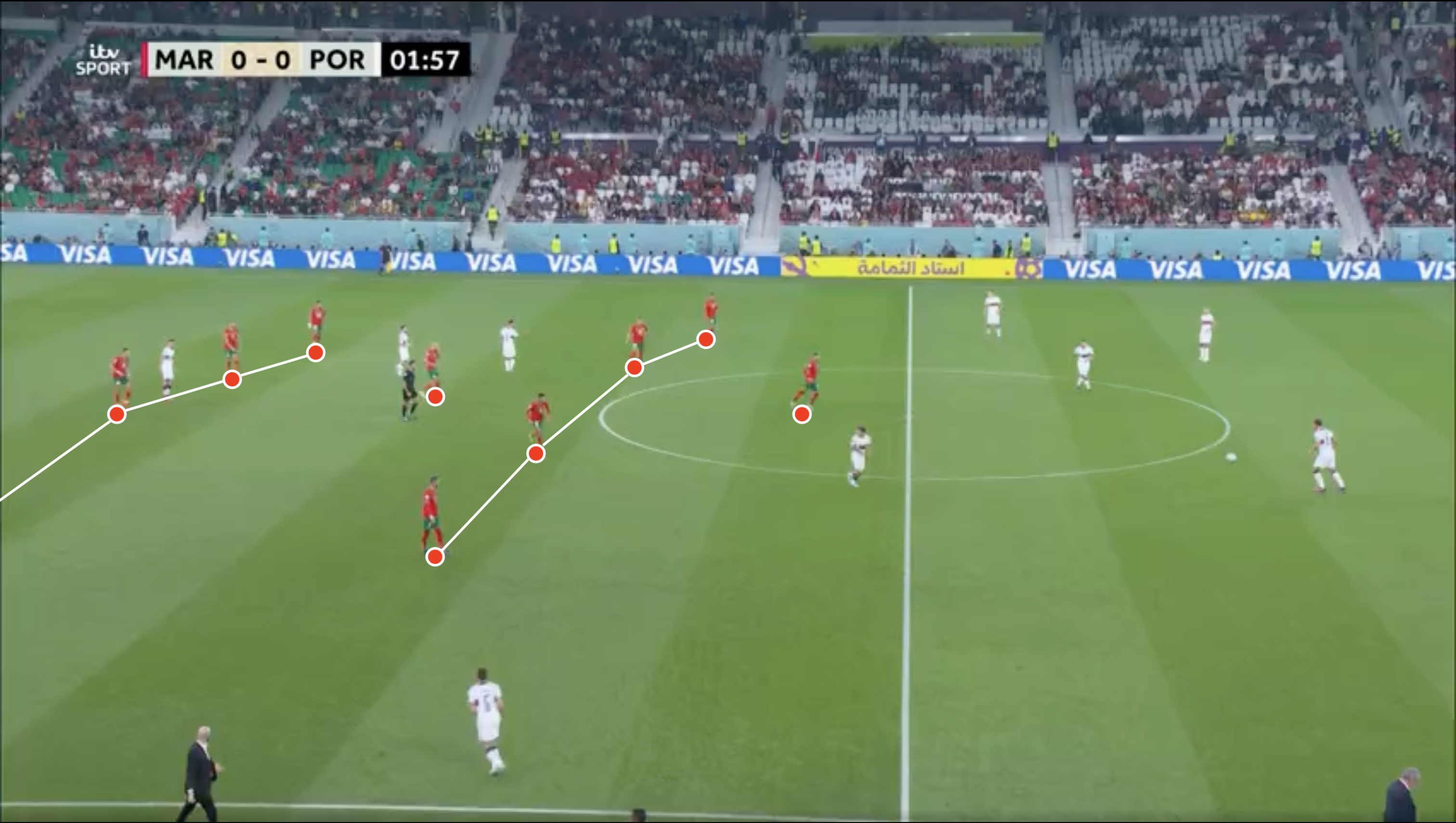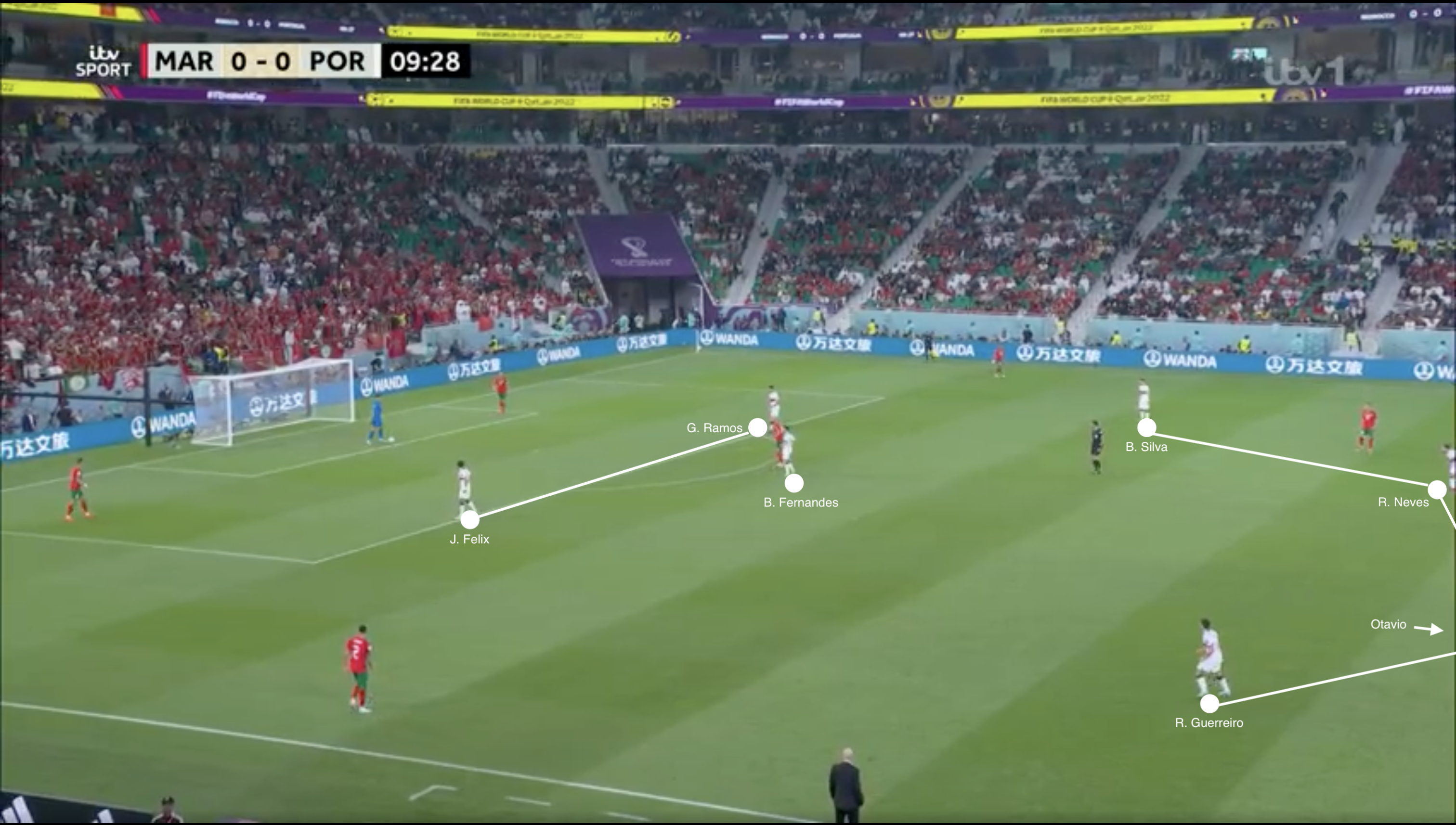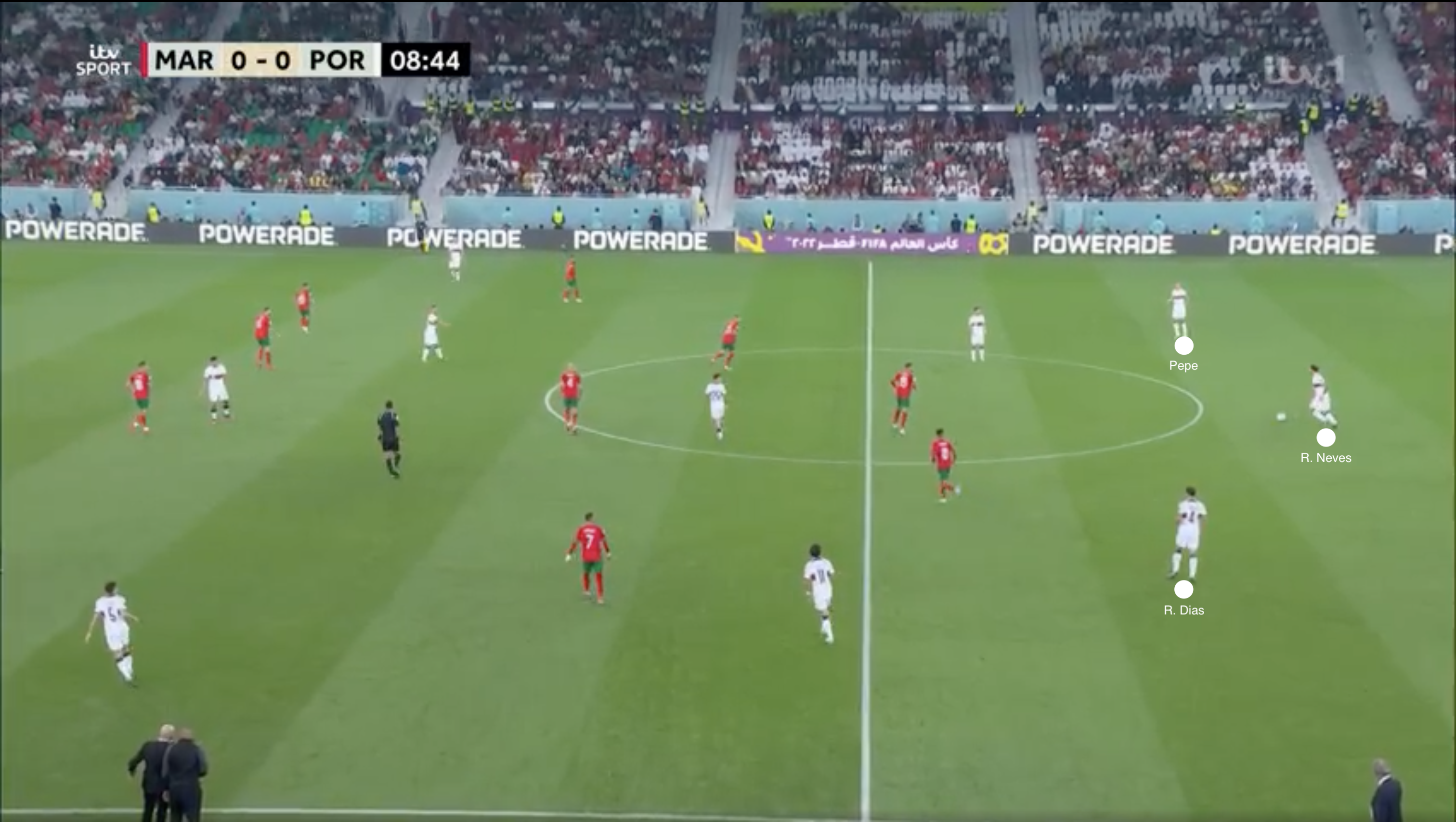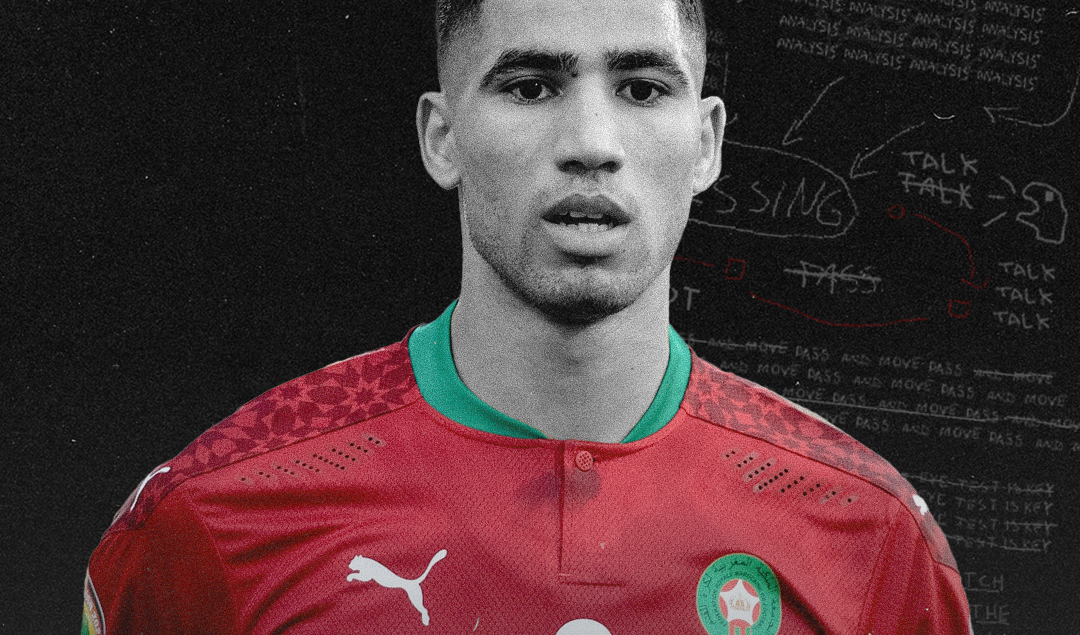Morocco 1-0 Portugal: Morocco’s Structure and Courage; Portugal’s Missing Component
On Saturday, the 2022 FIFA World Cup produced its latest in a series of shock results, as Morocco’s 1-0 win saw Portugal crash out of the tournament at the quarter-final stage. Youssef En-Nesyri’s 42nd-minute header gave the ‘Atlas Lions’ something to hold on to, and they produced another monstrous defensive performance to put themselves in the tournament’s final four, becoming the first-ever African side to reach the semi-finals of a World Cup. Jake Lane analyses where the game was won and lost.
Morocco Resilient Off the Ball and Brave in Possession
As they have done all tournament, Walid Regragui’s side settled into a compact 4-1-4-1 mid-block when out of possession, preventing their opponents from playing through the centre of the pitch. Any time Portugal were able to get through, Morocco’s midfield would collapse onto the ball receiver and force a turnover.

As a result, the Portuguese repeatedly attempted to go around or over the block, but the Moroccans dealt with both situations extremely well. Hakim Ziyech and Sofiane Boufal were hugely disciplined on either wing, and were always on hand to provide support to their full-backs when Portugal were connecting big diagonal switches to the wide areas.
Additionally, despite Goncalo Ramos’ best efforts to be an option for balls over the top, the back four held their line really well and either caught him offside, or stuck with him tightly, so this was never really a threat. As a result, Portugal really struggled to create chances, and despite having 73% possession, were limited to just three shots on target (in minutes 4, 82, and 90+1), and created just 0.92 expected goals. Morocco were also outstandingly brave when in possession, and often opted to play it short from goal kicks despite Portugal’s aggressive 3-4-1-2 pressing structure.

This was done with the intention of drawing Portugal’s press and either playing through or over it, placing a great deal of responsibility on the Moroccan players to be willing and available to take the ball under pressure. Morocco’s defensive midfielder, Sofyan Amrabat, shone throughout the match, contributing immensely to the only goal of the game.
In the 42nd minute, he receives the ball from his goalkeeper on the edge of his own box, turns quickly, and plays a progressive pass straight through the centre of the pitch, splitting the Portuguese forward and midfield lines. From there, Morocco are able to switch the ball out to the left-hand side, where they produce the cross to assist En-Nesyri’s leaping header. Amrabat has received great praise for his efforts so far this World Cup, and once again produced a big performance for his side, acting as a key component for them in and out of possession.
Portugal’s Lack of #6 Exposed
Ironically, Amrabat’s masterclass also served to shine even greater light on the glaring weak link in the Portugal side, that being their lack of a holding midfielder with the attributes needed for a high-possession, high-pressing side. In and out of possession, this area of the pitch was responsible for a lot of Portugal’s difficulties.
They deployed an aggressive press, but Morocco were repeatedly able to get into the space in front of their back four. Ruben Neves and Otavio often found themselves as somewhat of a double pivot, but neither are naturals/regulars in defensive midfield roles. As a result, the timing of their pressing actions was always a little off, and they were repeatedly bypassed, allowing Morocco to move up the pitch, relieve pressure on themselves, and create chances.
More importantly, though, the in-possession issues generated by a lack of true #6 played a major role in Portugal’s defeat. Neither Pepe nor Ruben Dias are particularly progressive ball players, so Neves was often tasked with dropping between the two centre-backs and finding passes into Portugal’s most threatening creators.

However, while Neves is very good at long and medium-range passing, and is capable of finding big switches of play or long balls over the top, he isn’t the sort of player to find penetrative passes between the lines into small pockets of space. With Portugal lacking this profile of midfielder, and Morocco already doing a good job of shutting down the centre, Fernando Santos’ side really struggled to get the ball into dangerous areas.
Their issues were compounded by the fact that Otavio, Bruno Fernandes, and Bernardo Silva kept having to drop deep to try and support the progression of play, but these are players that Fernando Santos needed further up the pitch, receiving the ball in those tight, congested, and more dangerous positions.
It may be the end of the World Cup for Portugal, but it isn’t the end of the world. Their performance against Switzerland in the previous round was very impressive, and they were perhaps unlucky to face a side as disciplined and well-drilled as Morocco were on Saturday. They have a young squad of talented players in every position, and overall the post-Ronaldo era looks like it is going to be a very exciting one.
Next for Morocco is their biggest test yet, current world champions France, but they enter the semi-final stage having kept clean sheets against Croatia, Belgium, Spain, and Portugal, with a Nayef Aguerd own-goal in their 2-1 group-stage win against Canada has being their only goal conceded all tournament. There is certainly room for optimism, and potential for yet another upset.
By: Jake Lane / @jakerslane
Featured Image: @GabFoligno / Visionhaus – Getty Images
